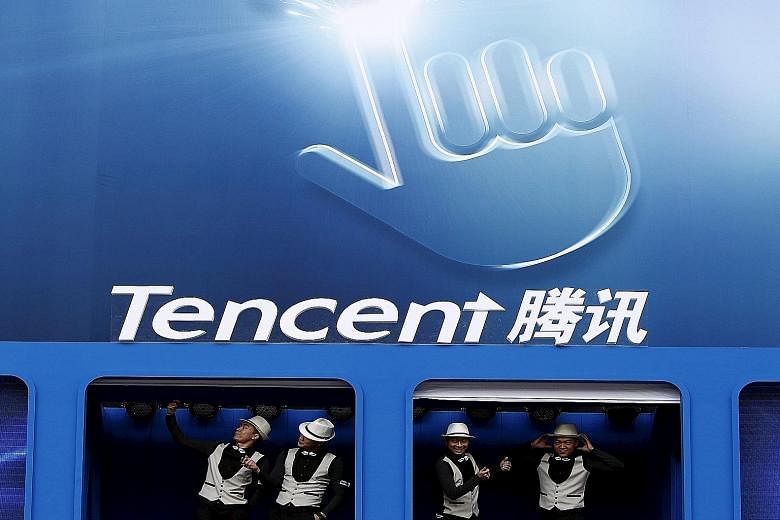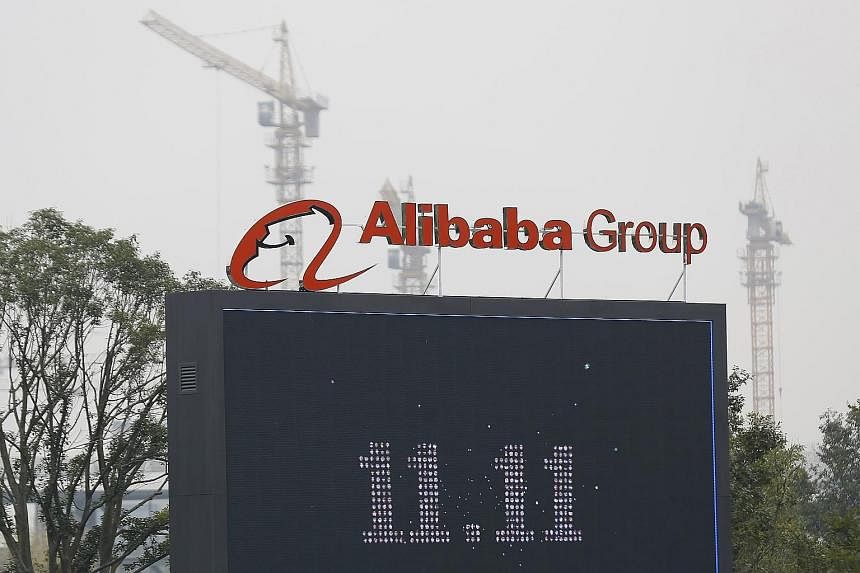Before Chinese stocks went on a roller-coaster ride in the past week or so, some of the nation's biggest e-commerce companies were on a global investment roll.
Alibaba, Tencent Holdings and wealth fund China Investment Corporation (CIC) spent substantial sums, through joint ventures or solo investment, on international start-ups as well as established firms, expanding their portfolio into niche markets showing promise.
Analysts say the deep pockets of these companies may mean the stock market crash will have little impact on these investments.
In fact, for Chinese companies, such portfolio additions may prove to be valuable even if the ventures themselves do not work out.
"China's economic slowdown means that moving cash overseas is a means of preventing hard-earned yuan from evaporating in the wake of currency devaluations," BMI's senior ICT analyst Andrew Kitson told The Straits Times.
"Even if the Chinese investors decide to liquidate those companies they've invested in, the intellectual property they have accrued will be very valuable in the long run."
Alibaba, Tencent and CIC announced investments to the tune of close to US$1 billion (S$1.4 billion) in foreign companies, including Singapore-based GrabTaxi, within days of each other since the middle of this month.
Alibaba, along with Taiwan's Foxconn and Japan's Softbank, invested US$500 million in India's online No. 2 marketplace Snapdeal.
Tencent announced it was investing a substantial amount in Kik Interactive, a Canadian start-up behind a popular messaging app with a database of nearly 200 million registered users. Tencent already has funded Snapchat, which has 100 million daily active users. CIC would fund GrabTaxi, valuing the company near to US$1.8 billion.
While there is nothing new in the rise of Chinese investment in overseas technology firms, analysts said the aim was for geographical and business growth rather than simply profits, as Chinese firms feel the need to emerge global champions.
"My view is that this is a strategy for these Chinese firms to gain a foothold in other markets via these investments/acquisitions," said Mr Ronnie Wee, managing partner of venture capitalist firm IncuVest.
"At some point, they can either aggregate these investments into the parent company or use these as platforms for growth into these regions," he said.
Beijing's change of tack on overseas direct investments (ODIs) for indigenous companies has helped the expansion, as has the view that this is the only way for its enterprises to become globally competitive.
"As Chinese trends are driven by change in regulation and adoptive policies, we expect major players to become more active in this sector with investments and acquisitions," said Mr Simon Squibb, chief executive of Hong Kong-based private start-up service Nest.
"ODIs from China are expected to maintain an annual growth of more than 10 per cent per year for the next five years," he said.
With a growing middle class, China's consumers aspire to have access to the same high-quality products, services and applications as enjoyed by their counterparts in developed markets. But tech companies lack the ability to think laterally and innovatively.
"Taking shortcuts to markets by bypassing costly research and development, testing and patenting processes have allowed technology companies to develop and sell low-cost alternatives to relatively expensive foreign-made products," Mr Kitson said.
But with the recent fall in stock markets in China, the tech stocks took a beating. Alibaba, for instance, fell to US$65.80 in New York last Monday, dropping below its September IPO price of US$68.
The market seesaw may make it difficult for some of the companies to secure the finance needed for their expansions, but most have deep pockets.
But in the long run, the investments in offshore countries, such as India, where the fallout of the stock market crash is less tangible, would ensure revenue growth and diversification in the difficult times that lie ahead.
Even if the stock markets were to recover, the tech company valuations may not regain historic highs in the short or medium term.
But there is a bright side.
"Even if the Chinese investors decide to liquidate those companies they've invested in, the intellectual property they have accrued will be very valuable in the long run," Mr Kitson said.



